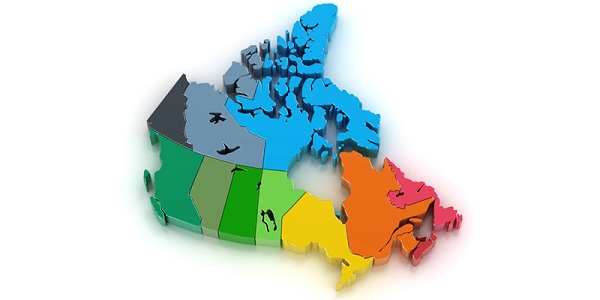News
State Of Emergency, Windstorm School Closures, Hwy 11-A Fatal Crash
3:55 pm – The Red Deer & District Community Foundation granted the Red Deer Cultural Heritage Society $2,000 for a Mural at Festival Hall. The mural will represent the cultural and ethnic history of the Red Deer Cultural Heritage Society member groups will be created by Lindsay Thurber Composite High art students to be completed by the spring of 2018.
For more local news, click here!
3:03 pm – Penhold Fire Crews responded to a total of 8 emergency calls on Tuesday night involving downed power lines on roofs of houses and across roads, along with trees down on some structures. Also, Penhold Fire Crews responded to assist the City of Red Deer to a fire on 60th Avenue and then ultimately to 4 more calls in the Riverside Meadows area. Then shortly after 9:30 am on Wednesday morning, Penhold Fire responded to a tree and power lines down on a house on Robinson Avenue. Fortis Alberta and Penhold Fire Crews removed the line and tree from the house.
12:03 pm – The ATB Financial Downtown Farmer’s Market is on this afternoon. However, the following road closures will be in place while it’s on.
11:54 am – Lindsay Thurber Comprehensive High School will be hosting a celebration in honour of Canada’s 150th birthday, Lindsay Thurber’s 70th birthday and National Aboriginal Day today. Local dignitaries will attend along with the students and staff of Lindsay Thurber. The celebration includes an all-school assembly to be held in the main gym, beginning at 12:30. Highlights of the assembly will include drum dancers, multi-media presentations and an aerial photo being taken of the entire student body. Plus, Lindsay Thurber High School will also reveal a student created time capsule to be re-opened in 50 years. The celebrations will end with a BBQ and birthday cake for students and staff.
For more local news, click here!
11:38 am – Red Deer County Operations department is pleased to announce that the new traffic circle constructed at the intersection of Laura Avenue and Lantern Street will open to the public today. (June 21)
11:35 am – Blackfalds RCMP advise they are investigating a serious two vehicle collision involving a single fatality on Highway 11-A and Range Road 283. The investigation is preliminary and an update will be provided as more information becomes available. The intersection of Highway 11-A and Range Road 283 is impassable at this time. Blackfalds RCMP are advising motorists to choose an alternate route as traffic is likely to be affected for several hours.
8:23 am – Officials with Red Deer Catholic Regional Schools say school buses are running today & schools are open. However, they are unable to update their bus app, as their servers are down from the storm last night.
For more local news, click here!
8:12 am – Cleanup efforts are in full swing today after a severe windstorm ripped through the City last night, causing significant damage and power outages in the community. Here’s the latest update from the City of Red Deer which has declared a Local State of Emergency.
7:54 am – A pair of schools in the Red Deer Public School District are closed today due to last night’s severe windstorm. They include Mountview and Gateway schools. Officials say other schools significantly impacted include Aspen Heights, Joseph Welsh and Grandview. Read More.
7:38 am – The City of Red Deer declared a state of local emergency on June 20, 2017 due to widespread power outages caused by a severe wind storm. Read More.
Business
Broken ‘equalization’ program bad for all provinces

From the Fraser Institute
By Alex Whalen and Tegan Hill
Back in the summer at a meeting in Halifax, several provincial premiers discussed a lawsuit meant to force the federal government to make changes to Canada’s equalization program. The suit—filed by Newfoundland and Labrador and backed by British Columbia, Saskatchewan and Alberta—effectively argues that the current formula isn’t fair. But while the question of “fairness” can be subjective, its clear the equalization program is broken.
In theory, the program equalizes the ability of provinces to deliver reasonably comparable services at a reasonably comparable level of taxation. Any province’s ability to pay is based on its “fiscal capacity”—that is, its ability to raise revenue.
This year, equalization payments will total a projected $25.3 billion with all provinces except B.C., Alberta and Saskatchewan to receive some money. Whether due to higher incomes, higher employment or other factors, these three provinces have a greater ability to collect government revenue so they will not receive equalization.
However, contrary to the intent of the program, as recently as 2021, equalization program costs increased despite a decline in the fiscal capacity of oil-producing provinces such as Alberta, Saskatchewan, and Newfoundland and Labrador. In other words, the fiscal capacity gap among provinces was shrinking, yet recipient provinces still received a larger equalization payment.
Why? Because a “fixed-growth rule,” introduced by the Harper government in 2009, ensures that payments grow roughly in line with the economy—even if the gap between richer and poorer provinces shrinks. The result? Total equalization payments (before adjusting for inflation) increased by 19 per cent between 2015/16 and 2020/21 despite the gap in fiscal capacities between provinces shrinking during this time.
Moreover, the structure of the equalization program is also causing problems, even for recipient provinces, because it generates strong disincentives to natural resource development and the resulting economic growth because the program “claws back” equalization dollars when provinces raise revenue from natural resource development. Despite some changes to reduce this problem, one study estimated that a recipient province wishing to increase its natural resource revenues by a modest 10 per cent could face up to a 97 per cent claw back in equalization payments.
Put simply, provinces that generally do not receive equalization such as Alberta, B.C. and Saskatchewan have been punished for developing their resources, whereas recipient provinces such as Quebec and in the Maritimes have been rewarded for not developing theirs.
Finally, the current program design also encourages recipient provinces to maintain high personal and business income tax rates. While higher tax rates can reduce the incentive to work, invest and be productive, they also raise the national standard average tax rate, which is used in the equalization allocation formula. Therefore, provinces are incentivized to maintain high and economically damaging tax rates to maximize equalization payments.
Unless premiers push for reforms that will improve economic incentives and contain program costs, all provinces—recipient and non-recipient—will suffer the consequences.
Authors:
National
Liberals, NDP admit closed-door meetings took place in attempt to delay Canada’s next election

From LifeSiteNews
Pushing back the date would preserve the pensions of some of the MPs who could be voted out of office in October 2025.
Aides to the cabinet of Prime Minister Justin Trudeau confirmed that MPs from the Liberal and New Democratic Party (NDP) did indeed hold closed-door “briefings” to rewrite Canada’s elections laws so that they could push back the date of the next election.
The closed-door talks between the NDP and Liberals confirmed the aides included a revision that would guarantee some of its 28 MPs, including three of Trudeau’s cabinet members, would get a pension.
Allen Sutherland, who serves as the assistant cabinet secretary, testified before the House of Commons affairs committee that the changes to the Elections Act were discussed in the meetings.
“We attended a meeting where the substance of that proposal was discussed,” he said, adding that his “understanding is the briefing was primarily oral.”
According to Sutherland, as reported by Blacklock’s Reporter, it was only NDP and Liberal MPs who attended the secret meetings regarding changes to Canada’s Elections Act via Bill C-65, An Act to Amend the Canada Elections Act before the bill was introduced in March.
As reported by LifeSiteNews before, the Liberals were hoping to delay the 2025 federal election by a few days in what many see as a stunt to secure pensions for MPs who are projected to lose their seats. Approximately 80 MPs would qualify for pensions should they sit as MPs until at least October 27, 2025, which is the newly proposed election date. The election date is currently set for October 20, 2025.
Sutherland noted when asked by Conservative MP Luc Berthold that he recalled little from the meetings, but he did confirm he attended “two meetings of that kind.”
“Didn’t you find it unusual that a discussion about amending the Elections Act included only two political parties and excluded the others?” Berthold asked.
Sutherland responded, “It’s important to understand what my role was in those meetings which was simply to provide background information.”
Berthold then asked, “You nevertheless suggested amendments to the legislation including a change of dates?”
“My role was to provide information,” replied Sutherland, who added he could not provide the exact dates of the meetings.
MPs must serve at least six years to qualify for a pension that pays $77,900 a year. Should an election be called today, many MPs would fall short of reaching the six years, hence Bill C-65 was introduced by the Liberals and NDP.
The Liberals have claimed that pushing back the next election date is not over pensions but due to “trying to observe religious holidays,” as noted by Liberal MP Mark Gerretsen.
“Conservatives voted against this bill,” Berthold said, as they are “confident of winning re-election. We don’t need this change.”
Trudeau’s popularity is at a all-time low, but he has refused to step down as PM, call an early election, or even step aside as Liberal Party leader.
As for the amendments to elections laws, they come after months of polling in favour of the Conservative Party under the leadership of Pierre Poilievre.
A recent poll found that 70 percent of Canadians believe the country is “broken” as Trudeau focuses on less critical issues. Similarly, in January, most Canadians reported that they are worse off financially since Trudeau took office.
Additionally, a January poll showed that 46 percent of Canadians expressed a desire for the federal election to take place sooner rather than the latest mandated date in the fall of 2025.
-

 Brownstone Institute1 day ago
Brownstone Institute1 day agoThe Most Devastating Report So Far
-

 Economy2 days ago
Economy2 days agoCOP 29 leaders demand over a $1 trillion a year in climate reparations from ‘wealthy’ nations. They don’t deserve a nickel.
-

 Censorship Industrial Complex1 day ago
Censorship Industrial Complex1 day agoAnother Mass Grave?
-

 ESG12 hours ago
ESG12 hours agoCan’t afford Rent? Groceries for your kids? Trudeau says suck it up and pay the tax!
-

 Alberta1 day ago
Alberta1 day agoMAiD In Alberta: Province surveying Albertans about assisted suicide policies
-

 Energy1 day ago
Energy1 day agoOttawa’s proposed emission cap lacks any solid scientific or economic rationale
-

 Alberta1 day ago
Alberta1 day agoOn gender, Alberta is following the science
-

 International13 hours ago
International13 hours agoElon Musk praises families on X: ‘We should teach fear of childlessness,’ not pregnancy


